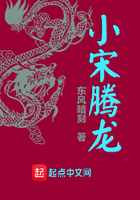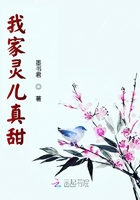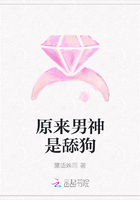A:Have you heard that we are going to have a course about Confucius next semester?
B:Really?That's what I always want to have in class。
A:I thought that it must be very difficult for us to understand。
B:A big challenge indeed!
A:How much do you know about Confucius?
B:Just some general facts。Confucius(born Kong Qiu,styled Zhong Ni)was born in the village of Zou in the country of Lu in 551 B。C。,a poor descendant of a deposed noble family。
A:Confucius's thoughts have been developed into a system of philosophy known as Confucianism(儒家)。What's the main idea of Confucianism?
B:His philosophy emphasized personal and governmental morality,correctness of social relationships,justice and sincerity。These values gained prominence in China over other doctrines,such as Legalism(法家)or Taoism(道家)during the Han Dynasty(206 B。C。——220 A。D。)。
A:Why is it popular again in China now?
B:It has always been very popular in China。People just didn't value it as much as they do nowadays because they all think it hard to understand because Confucius'thoughts were all written in classical Chinese,which is quite different from modern Chinese。
A:How do people find it easy to understand nowadays?
B:When a professor named Yu Dan teaches analects in modern language and plain words on TV,people begin to have interest in it and they find so many valuable ethics which are still practical in modern society。
A:Can you recite some of its golden sentences?
B:Of course。Such as,exploring the old and deducing the new make a teacher(温故而知新,可以为师矣。)。
A:You already know so much about him and it's unnecessary for you to take the course now。
B:Just some basic facts。There are still a lot to learn about him in the course。
A:你听说我们下学期就要学孔子了吗?
B:真的吗?我一直都很想上这门课呢!
A:我觉得对我们来说孔子很难理解吧。
B:确实是一个很大的挑战!
A:你了解一些关于孔子的什么呢?
B:只有一些基本的知识。孔子(名丘,字仲尼)生于公元前551年鲁国的陬邑,是一个没落的贵族家族的贫穷后裔。
A:孔子的思想发展成一套哲学体系,那就是有名的儒家学说。那么你知道儒家学说的核心思想是什么吗?
B:孔子的思想哲学重在“仁”,既是对个人又是对政府的道德要求,还强调社会关系、公平和诚实的正确性。这些价值观在汉朝(公元前206年—公元220年)比其它的学说像法家、道家等都要受到更多的重视。
A:那为什么儒学又在中国流行起来了?
B:它在中国一直都很流行。现在人们更重视它是因为更理解它的内涵了。儒学思想都是用文言文写的,现代的人们理解起来有点困难。
A:现在人们怎么会又发觉理解起来简单些了呢?
B:当于丹教授开始在电视上用通俗易懂的现代语言讲解论语时,人们发现很多儒学思想在现代社会仍有它的实际意义,因而更感兴趣了。
A:你能背诵一些孔子的名言吗?
B:当然可以。像“温故而知新,可以为师矣。”
A:你已经对孔子了解这么多了,看来都没必要再上这门课了。
B:我只略知其一二。还有很多关于孔子的知识需要在课堂上汲取。
Descendant n。后裔,子孙
Doctrine n。学说
Legalism n。法家
Taoism n。道家
Confucianism n。儒家
Analects n。论语
Golden sentence n。名言
背景知识——孟子及孔子名言
Mencius was a Chinese philosopher of the fourth century B。C。,whose influence on intellectual tradition is roughly equivalent to the joint influence of St。Paul and Aristotle on Western thought。Mengzi thought of himself as merely defending the teachings of Confucius against rival philosophical doctrines。However,Mengzi was actually a very original thinker,whose doctrine of the goodness of human nature went far beyond anything Confucius had said。Long after his death,Mengzi's interpretation of Confucianism became orthodoxy,which means that generations of Chinese intellectuals literally memorized his work。
孟子是中国公元前四世纪的哲学家,他对思想传统上的影响等同于西方思想界的圣·保罗和亚里士多德。孟子仅仅认为他自己在为儒家思想同其它的哲学学说思想辩驳。但是,孟子实际上是一位非常有创造性的思想家,他的关于“性本善”的讨论是孔子的任何思想所没有提及的。在孟子去世后很久,他的儒家思想成为正统思想,意味着世代的中国知识分子都记得他的著作。
To learn and to practice what is learned time and again is pleasure,is not it?To have friends from afar is happiness,is not it?To be unperturbed when not appreciated by others is gentlemanly,is not it?
子曰:学而时习之,不亦说乎?有朋自远方来,不亦乐乎?人不知而不愠,不亦君子乎?
To acknowledge what is known as known and what is not known as not known is knowledge。
子曰:知之为知之,不知为不知,是知也。
Knowledge is not equal to devotion。Devotion is not equal to joy。
子曰:知之者不如好知者,好知者不如乐知者。
To do a good job,one must first sharpen one's tools。
子曰:工欲善其事,必先利其器。
Not to do to others as you would not wish done to yourself。
子曰:己所不欲,勿施于人。
Learning without satiety,instructing others without being wearied。
子曰:学而不厌,诲人不倦。
Wishing to be established himself,seeks also to establish others,wishing to be enlarged himself,he seeks also to enlarge others。
子曰:己欲立而立人,己欲达而达人。
孔子生平简介
孔子像孔丘(前551年9月28日~前479年4月11日),字仲尼。孔子排行老二,汉族人,春秋时期鲁国人。孔子是我国古代伟大的思想家和教育家,儒家学派的创始人,世界最著名的文化名人之一。编撰了我国第一部编年体史书《春秋》。据有关记载,孔子出生于鲁国陬邑昌平乡(今山东省曲阜市东南的南辛镇鲁源村);孔子逝世时,享年73岁,葬于曲阜城北泗水之上,即今日孔林所在地。孔子的言行思想主要载于语录体散文集《论语》及先秦和秦汉保存下的《史记·孔子世家》。















